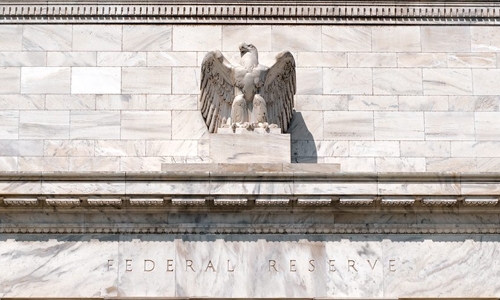US growth easing: Fed
The Federal Reserve believes US growth will “step down” this year from last year’s rapid pace amid rising global risks, including from tense trade relations, according to minutes released Wednesday. And given the greater uncertainty about the economic outlook, the central bankers said they were not sure what their next move would be, according to the minutes of the Fed’s last policy meeting of January 29-30.
While the US economy is expected to remain solid, the waning stimulus from the Republican-driven tax cuts of 2017 will contribute to the slowing, with “GDP in 2019 to step down somewhat from the pace seen over 2018,” the minutes said. The Fed raised the benchmark lending rate four times last year but after the last increase in December, policymakers found “the economic outlook had become more uncertain,” the minutes said.
As financial markets became roiled amid the trade war between the United States and China, policymakers kept interest rates on hold last month, and sent clear signals that they would be in no hurry to raise them again soon. The global economy “continued to record slower growth and consumer and business sentiment had deteriorated,” the report noted, adding that Brexit, the trade tensions and the recent partial federal government shutdown also were seen as factors “contributing to uncertainty about the economic outlook.”
The Fed last month shifted its stance dramatically and said explicitly that officials were prepared to remain patient before deciding on the next move. The minutes said that waitand-see posture “would allow time for a clearer picture of the international trade policy situation and the state of the global economy to emerge,” in particular regarding “the extent and persistence of the economic slowdown in Europe and China.”
Ending asset sales
The Fed minutes show policymakers were concerned about markets and took note of the steep decline seen on Wall Street late last year as “financial asset prices appeared to be sensitive to information regarding trade policy tensions, domestic fiscal and monetary policy, and global economic growth prospects.” But the minutes showed “several” officials believed the economy would be strong enough to require another rate hike this year, while “many” policymakers noted that if uncertainty abated the Fed would have to find a new way to describe policy other than by being “patient.”
“Almost all participants thought that it would be desirable to announce before too long a plan to stop reducing the Federal Reserve’s asset holdings later this year,” the minutes said, but indicated the final amount would remain higher than before the crisis.
Related Posts

